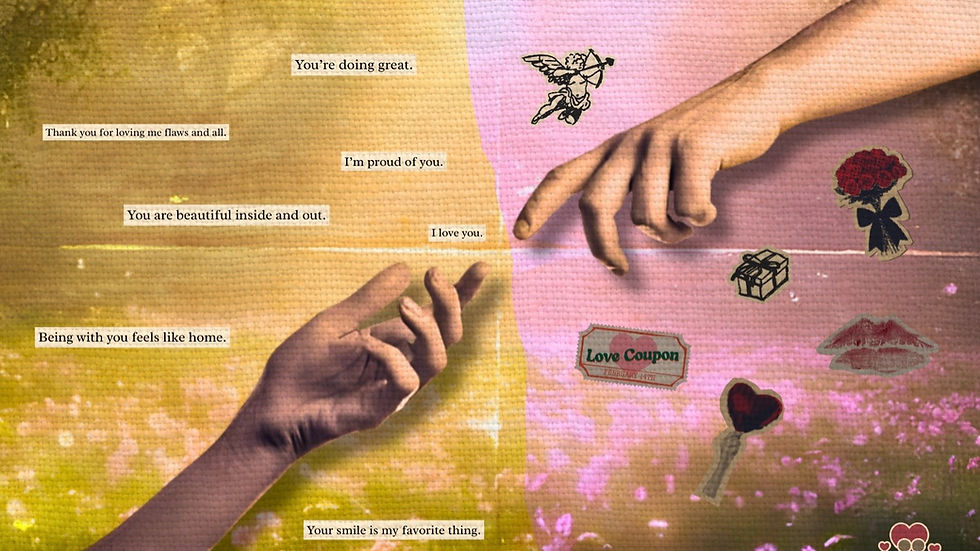From ‘He’ and ‘She’ to ‘They’
- The Communicator
- Jun 28, 2025
- 3 min read
For the longest time, gender has been confined to binaries: girl or boy, pink or blue, dolls or cars, and she or he. Society taught us that these were the only choices. But the truth is, there has always been something beyond—and it's them.

The LGBTQIA+ community, which has long been fighting to be seen, heard, and recognized.
While being called the wrong name or title may be an occasional circumstance for some, for many nonbinary people, being referred to with the wrong pronoun is a constant reality they face every day.
Their identity is often misunderstood or even outright ignored. Many transwomen, for instance, are still being called ‘Sir’ despite presenting as a woman, with long hair and feminine clothing. It is a constant reminder that many still stick to traditional ideas and outdated norms regarding gender identity and gender expression.
Asking over assuming
On September 8, 2023, Drag Race Philippines Season 2 contestant Captivating Katkat shared on Facebook her personal experience of being misgendered by a waiter at a restaurant. She was with fellow contestants from the show when a server replied with "Sir, warm or cold?” after they asked for water.
Katkat said that she knew the waiter was just ignorant and accepted their apology after being corrected by her friends. In the same post, she emphasized the importance of normalizing the practice of asking someone’s gender pronouns rather than making assumptions.
However, instead of sparking empathy, the comment section was met with ridicule and mockery. Sarcastic remarks, such as “Well said, Sir," "Sir, yes, Sir!" and "Noted, Sir" were common in the post—highlighting people’s lack of awareness, or worse, deliberate ignorance, of inclusivity and diversity.
Katkat is just one of the countless LGBTQIA+ members who experience this kind of treatment. So often, their stories go unheard. They quietly endure being called the wrong pronoun, hoping that they will be correctly addressed in the future.
Beyond the binary
Pronouns are used on a daily basis in communication to address someone without calling their name. It is a sign of honoring their identity and making them feel safe to be themselves in the community they live in.
Assuming someone’s pronouns can be disrespectful and cause emotional harm for them when incorrect. Beyond “she/her” and “he/him,” there are many individuals who identify outside the binary. Some queer members identify as both, neither, or somewhere in between—using pronouns like “they/them” to reflect their identity.
Historically, members of the LGBTQIA+ community have faced constant bullying, harassment, and oppression, often made to feel that being their true selves was a sin in the eyes of other people.
Even today, many are still denied equal rights, making them afraid to express themselves. The Sexual Orientation, Gender Identity, Gender Expression, and Sex Characteristics (SOGIESC) Bill, which seeks to protect them from discrimination, has yet to pass into law in the Philippines.
Instead of expecting them to ‘come out’ from the closet, society should be the one to embrace and accept them for who they are by acknowledging their identity. Addressing them by their preferred pronoun is a small but major step in building an inclusive environment.
Small step, big impact
Just like how you ask a person’s name, it does not hurt or make you ignorant to ask someone’s pronouns when uncertain. In fact, it shows respect for their identity and affirms their dignity.
Asking and using appropriate pronouns may seem like a simple act, but for them it means everything. Even small steps like this contribute to progress.
Calling people by their appropriate pronouns whether he, she, or they, helps create an inclusive and respectful community. Ensuring a safe space for the LGBTQIA+ community requires collective effort. It starts with respecting one another’s identity so they can freely express themselves, without fear of judgment.
Article: Mikaelah Bianca Panopio & Aaron Ernest Cruz
Graphics: Emar Lorenz Samar




Comments